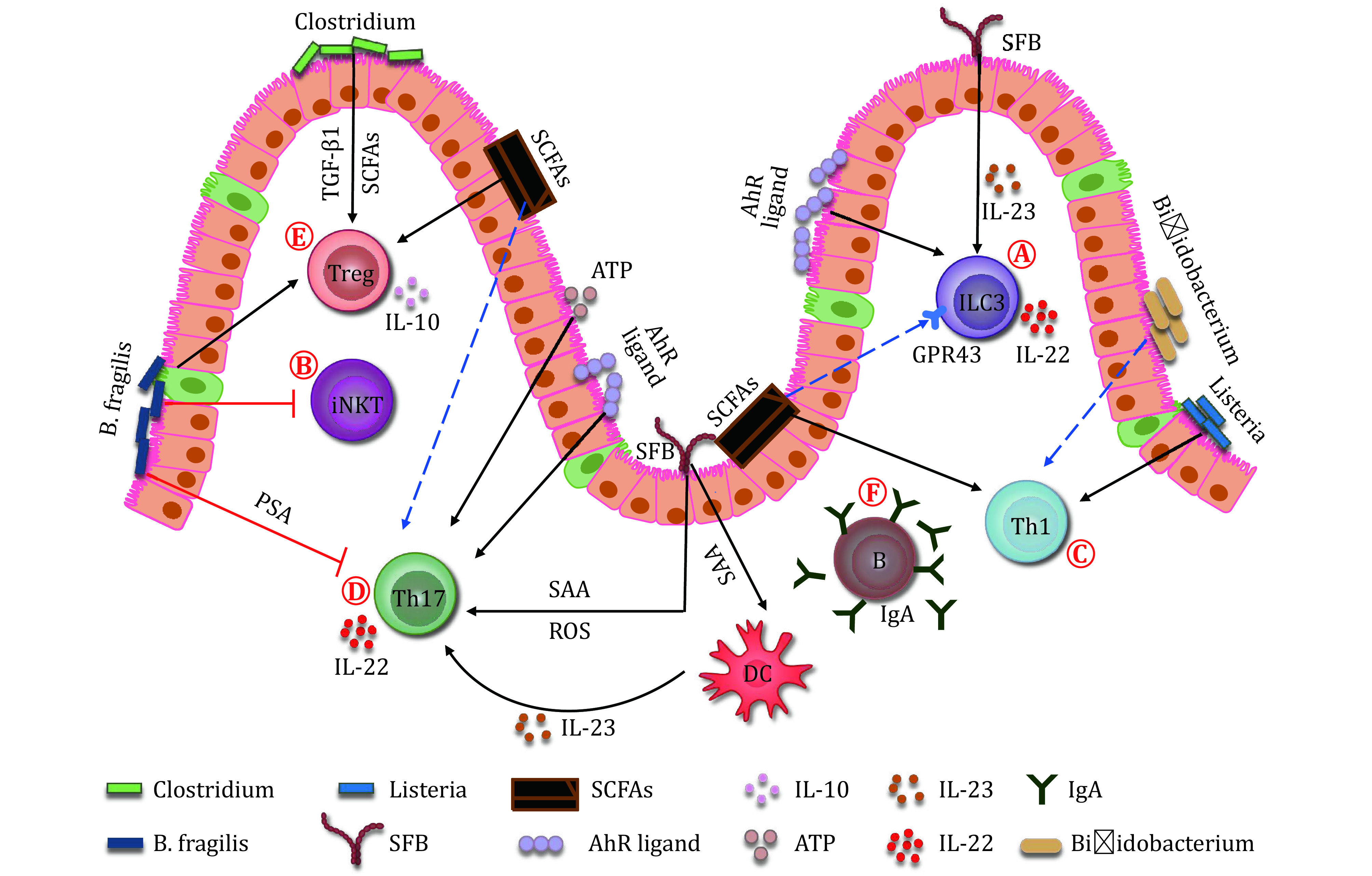Figure 1.

Microbiota helps to shape the immune system. A Both microbes and their metabolites regulate ILC3. SFB colonization promotes the production of IL-22 from ILC3 in an IL-23-dependent manner. Butyric acid negatively regulates the NCR+ ILC3. Whereas, SCFAs selectively promote the proliferation and effector function of colonic ILC3 through binding to GPR43. The Ahr ligand generated from microbes also regulates ILC3 number and their IL-22 production. B B. fragilis reduces the number of iNKT cells in the gut. C Microbes and their metabolites affect Th1 response. Bifidobacterium influences the Th1 cytokine production. L. monocytogenes induces the Th1 differentiation. Also, a microbial metabolite, butyrate, benefits the Th1 polarization. D Microbes and their metabolites regulate the differentiation and effector function of Th17. SFB facilitates the differentiation of Th17 through promoting ROS and SAA production from the ileal epithelial cells. The SAA also benefits the activation and survival of Th17 by stimulating IL-23 production from dendritic cells. The ATP derived from microbiota also stimulates the differentiation of Th17 cells. SCFAs, such as butyrate, inhibits the polarization of Th17 cells, however, acetate promotes the Th17 responses. B. fragilis produced PSA inhibits the differentiation of Th17. The AhR ligands enhance the IL-22 secretion from Th17. E Microbes and their metabolites regulate Treg differentiation and function. Clostridium generates SCFAs, and induces the epithelial cells to produce TGF-β1. Both SCFAs and TGF-β1 can stabilize peripheral Treg and promote their function. The PSA produced by B. fragilis promotes the differentiation of Treg cells and their IL-10 expression. The butyrate promotes the differentiation of Treg. F Conventional microbiota deletion reduces the IgA secretion from B cells
